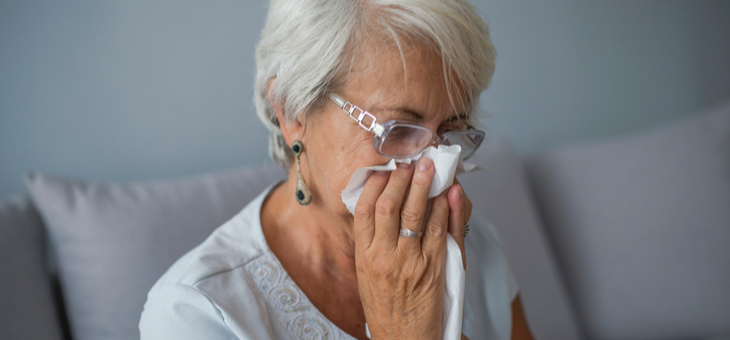If you or a family member have allergies, it’s important to keep your home as allergen free as possible. These simple housekeeping tips are an easy way to reduce the risk of a reaction.
Vacuum frequently
Vacuum once or twice a week to reduce the number of dust particles and allergens in your home. Check that your vacuum cleaner is fitted with an HEPA filter. HEPA stands for high-efficiency particulate air, and these types of mechanical air filters are designed to trap small particles such as dust mites, pollen, smoke and pet dander. Other filters may be too large, scattering rather than trapping these particles.
Sweep outside doors
Keep the porch or path outside your front and back door clear to prevent dust and pollen particles blowing inside. If you live in an apartment, vacuum outside your front door. Make sure you keep the door closed while you work, as sweeping may stir up particles.
Keep wet areas mould free
Mould often grows around drains, in the corners of showers and at the base of taps. Scrub these vulnerable areas regularly to prevent the growth of mould. Remember to keep an eye on your shower curtain, too, as they are also susceptible to mould growth. Some can be machine washed.
Clear the clutter
Allergens such as dust mites and cockroaches are likely to live in piles of clothes or stacked carboard and paper. Reducing the clutter in your home also reduces their hiding places.
Use fragrance-free cleaners
While it can be nice for everything to smell like daisies while you clean, it’s not as fun when your eyes and nose start running. The fragrances in cleaners and detergents can trigger symptoms in people who experience allergies. Use fragrance-free products instead.
Use a damp cloth
A damp cloth will trap dust on surfaces and skirting boards rather than send it into the air. Mop heavily trafficked areas regularly.
Wash your sheets
Dust mites are tiny members of the spider family that live in bedding. Approximately 18 to 30 per cent of people have an allergic sensitivity to dust mites. Wash your sheets and pillows weekly in water above 55°C to ensure they don’t live in your bedding.
Don’t air dry bedding
If you are particularly sensitive to pollen or have hayfever, don’t hang your sheets outside to dry. Your sheets are likely to pick up tiny pollen and mould particles that may trigger allergies. It’s best to use a dryer or hang your laundry inside.
Avoid shampooing carpets
Wet carpet cleaners are likely to make your carpet wet and vulnerable to mould growth. It’s best to limit or avoid their use all together, especially during the colder months.
If you enjoy our content, don’t keep it to yourself. Share our free eNews with your friends and encourage them to sign up.
Related articles:
What your sleep position says about you
Five ways to get rid of hayfever fast
How often do you wash your sheets?

